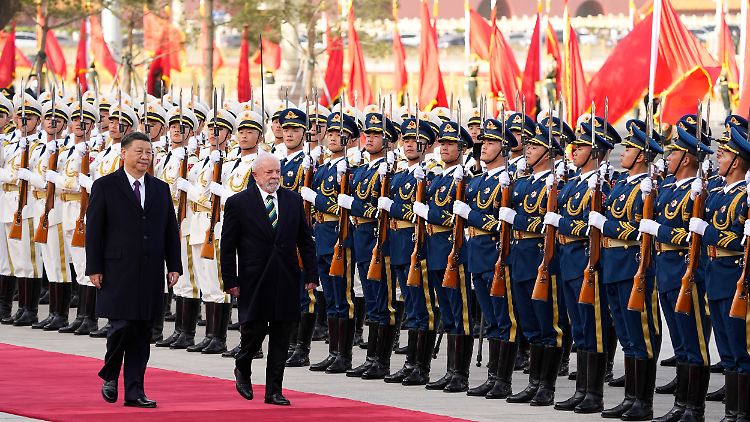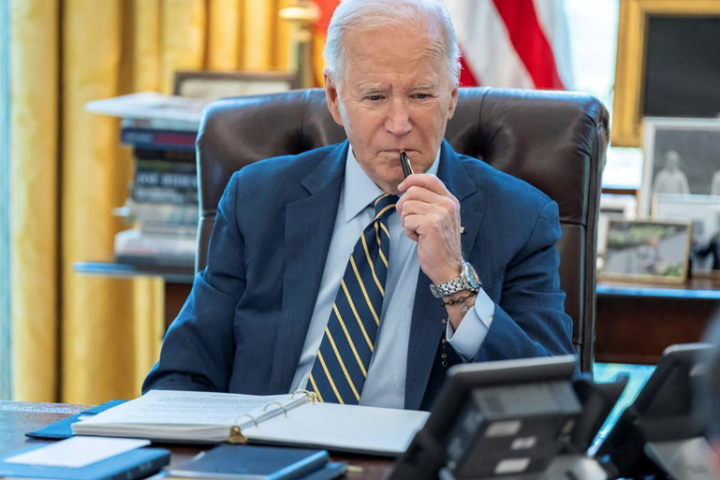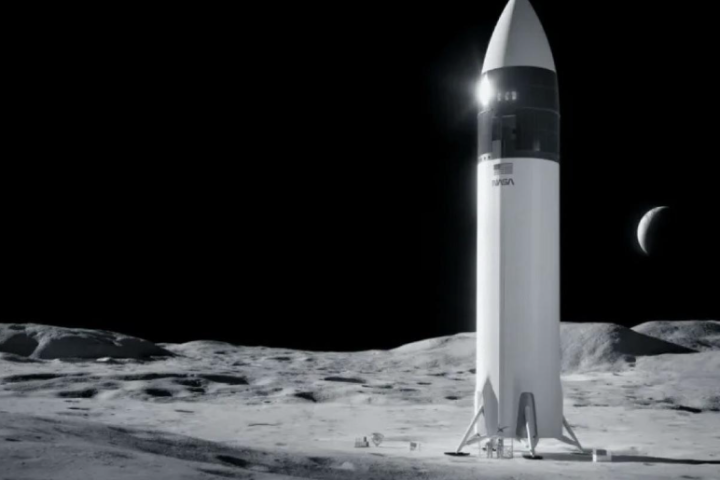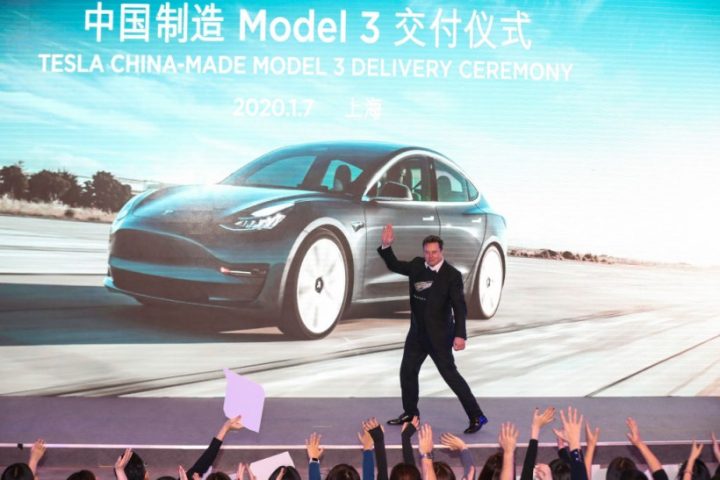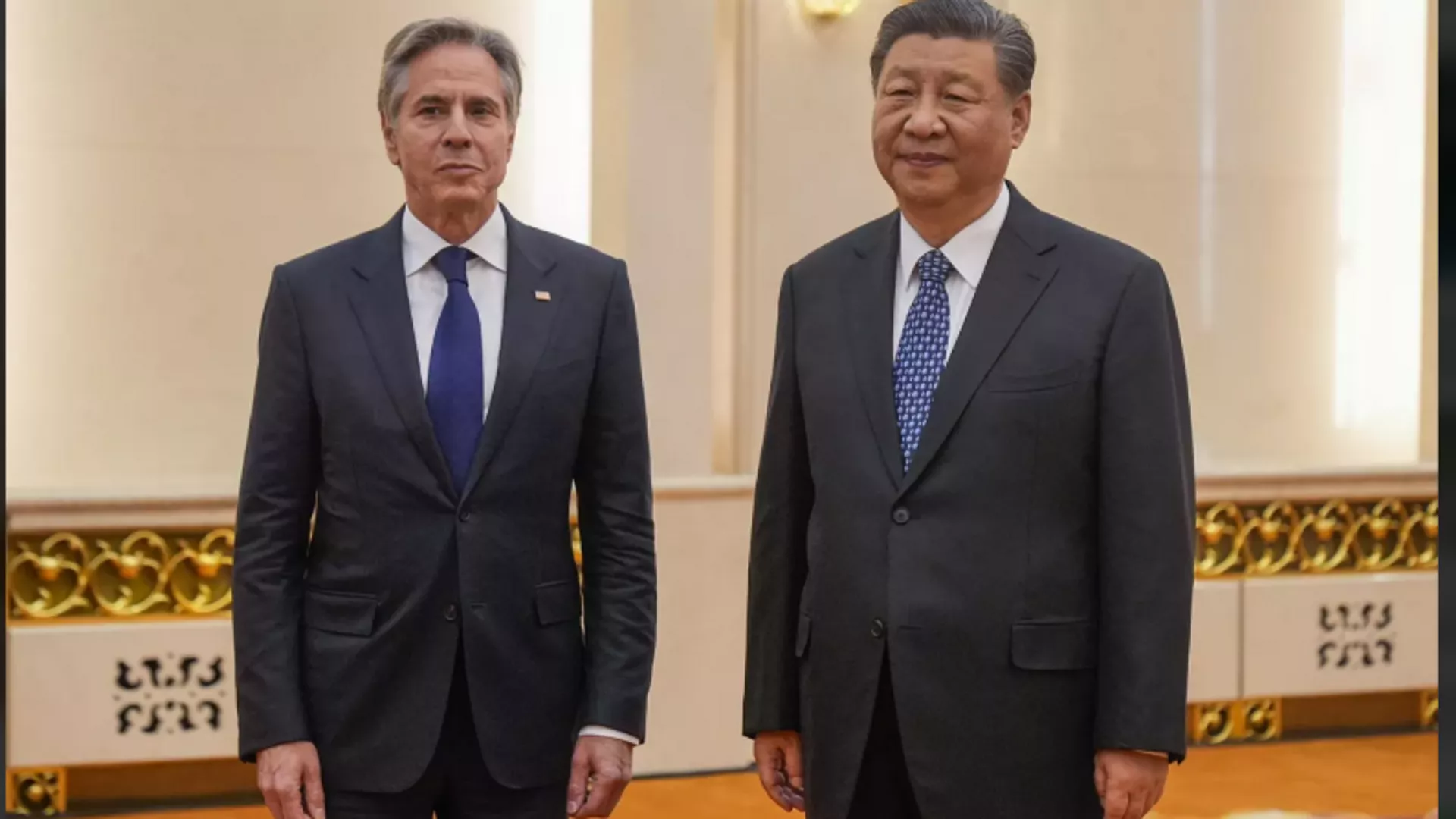The balance of power between Europe and China has changed, says Janka Oertel of the European Council on Foreign Relations. “The Chinese leadership is no longer convinced that China needs Europe more than Europe needs China.” That affects the dynamic, “and European leaders need to get their heads around that,” she says.
Broadly coordinated sanctions like the one now in place against Russia would do serious damage to the Chinese economy, Oertel says. “You want to avoid such a unified position against China. That’s why Beijing launches a charm offensive every now and then and otherwise tries to drive wedges between the states as much as possible.”
ntv.de: The G7 has called on China to refrain from threats, coercion, intimidation or the use of force. Is it the usual behavior or is the way the major democracies deal with China changing?
Janka Oertel: What we are hearing at the moment has not been standard repertoire in dealing with Beijing in the past. The first thing that is new is that China is now one of the main components in the discussions of the G7; this has only developed in recent years. This is mainly due to China’s much more aggressive stance and the fact that its relationship with the U.S., but also with Europe, has changed considerably. Second, the close cooperation between China and Russia, especially since the Russian invasion of Ukraine, is attracting entirely new concerns in Europe as well. The close intertwining of Atlantic and Pacific security is thus becoming much clearer, especially for Europeans.
That is, the Americans had this realization earlier?
The U.S. has realized for some time that the idea of an Asian area and a European area, in which separate security and to some extent economic policies take place, is outdated. Thinking has become much more networked. Meanwhile, we here in Europe are also realizing more and more that we can no longer think of our own security in isolation from security in East Asia. Similarly, Europe cannot shape its own economic policy in isolation from China’s behavior.
Hasn’t that been the case for some time?
When the Chinese leadership makes decisions, that has had an impact on the European economy in the past as well. But now it also has an impact on European security. That is a new realization. It also means that new tones are being struck and that an issue like Taiwan is being addressed in a completely different way.
Like the G7 did this week?
The G7 is now explicitly calling on China not to unilaterally change the status quo in the Taiwan Strait by violent means and to uphold international law. This is evidence of the realization that China has become such a powerful geopolitical actor that it no longer abides by rules – or believes it no longer has to abide by rules. We already see this in many cases where the Chinese government is ready and willing to violate, change, or shift international law and accepted rules in its own favor. The global power structure has changed.
How important, then, is what the West says or does to China at all?
Economically, it still matters quite a bit because China’s strength does not develop in isolation. Beijing’s power also comes from China’s central role as a global economic player. However, it is impossible to imagine the global economy without the United States, Europe or even Japan. But if the major economies limit exports of important technologies to China, for example, then China’s ability to innovate is massively diminished.
Keyword semiconductors.
These U.S. export controls in the area of semiconductor technology and the cooperation in this regard with Japan and the Netherlands have an enormous impact on the Chinese economy in this area. Ultimately, China’s technological strength, innovative capacity and economic power continue to be based on its access to Western technology and its economic cooperation with the West. Beijing is aware that China has been one of the biggest beneficiaries of the international trading system and globalization in recent decades.
What changes does Europe in particular need to perceive and understand?
The balance of power has changed. The Chinese leadership is no longer convinced that China needs Europe more than Europe needs China. They now definitely think the other way around: Europe is more dependent on China. That has a massive impact on the dynamic, and European leaders need to get their heads around that.
How does this dynamic differ from that in China’s relationship with the United States?
Very clearly. The U.S. is the frame of reference for China, not Europe. Europe is a useful partner for the Chinese leadership to better position itself strategically in the global structure.
The leadership in Beijing is well aware that sanctions such as those imposed on Russia after the invasion of Ukraine, i.e. a broad alliance of the U.S., Europe and Asian states such as Japan, would severely damage the Chinese economy. That would really hurt. One would like to avoid such a unified position vis-à-vis China. That is why Beijing launches a charm offensive every now and then and otherwise tries to drive wedges between the states as much as possible. Beijing’s basic orientation is: It sees itself as facing a hostile world in which it can improve its own strategic position through strategic cooperation with others. Hence the close cooperation with Russia, but also with other partners such as Brazil or the Gulf states.
Economic relations with China are therefore risky, but at the same time they secure influence. Would there be a way to intensify trade, to strengthen one’s own influence through this, but only in sectors that are not really relevant for the West?
Theoretically yes, I just don’t know what that would look like in practice at the moment. Trade only in areas where we don’t think the dependencies are so bad, at the same time make China dependent on us? I think that’s a bit unrealistic. Also because the guiding principle of the Chinese leadership is different: China should become more independent of the world and the world more dependent on China.
In other words, exactly the opposite.
If you realize that, then you already understand a lot about how politics works in China right now: strengthening the domestic market, building up as many of your own corporations as possible to dominate this market, and using domestic consumption to keep a functioning economy going that can operate as independently as possible. One goal, for example, is to build a fully localized supply chain for semiconductors. Whether that can be accomplished is questionable, but it is at least the goal.
So this is a bold plan?
No other country in the world currently manages to produce semiconductors autonomously. Even the U.S. can’t do it without us and the Asian partners in Japan, Korea or Taiwan – this supply chain is extremely internationalized. China wants to be independent here in the long term and at the same time position itself more broadly in other relationships, for example by relying on a large number of players for fossil fuels or materials that are central to green technologies, such as lithium or cobalt.
So risk mitigation is the goal.
At the same time, it is also about diversification. It’s about minimizing dependencies and at the same time creating core areas in which you yourself create dependencies for others, for example in the area of 5G technology, in which Chinese corporations have become central companies. The Chinese leadership is relying on its national champions, which are “too big to ignore” and are squeezing out competition at home and internationally. It took a while for us in Europe to see through this.
So Europe is late in realizing this, but is it still early enough to have an impact?
In the meantime, many in Europe see the need to take countermeasures, and that is certainly happening. At the national and European level, people are putting together a new toolbox – from investment screening, to new means of dealing with economic pressure from China. But there are areas where the Chinese government has already managed to carve out a position that challenges us. Access to critical raw materials and battery technology, for example, are areas that we in Europe have not looked at in time. Here, Chinese companies are now in such a dominant role that it will cost us quite a bit of work, money and also political capital to break down existing dependencies.
Source of the news: https://www.n-tv.de

